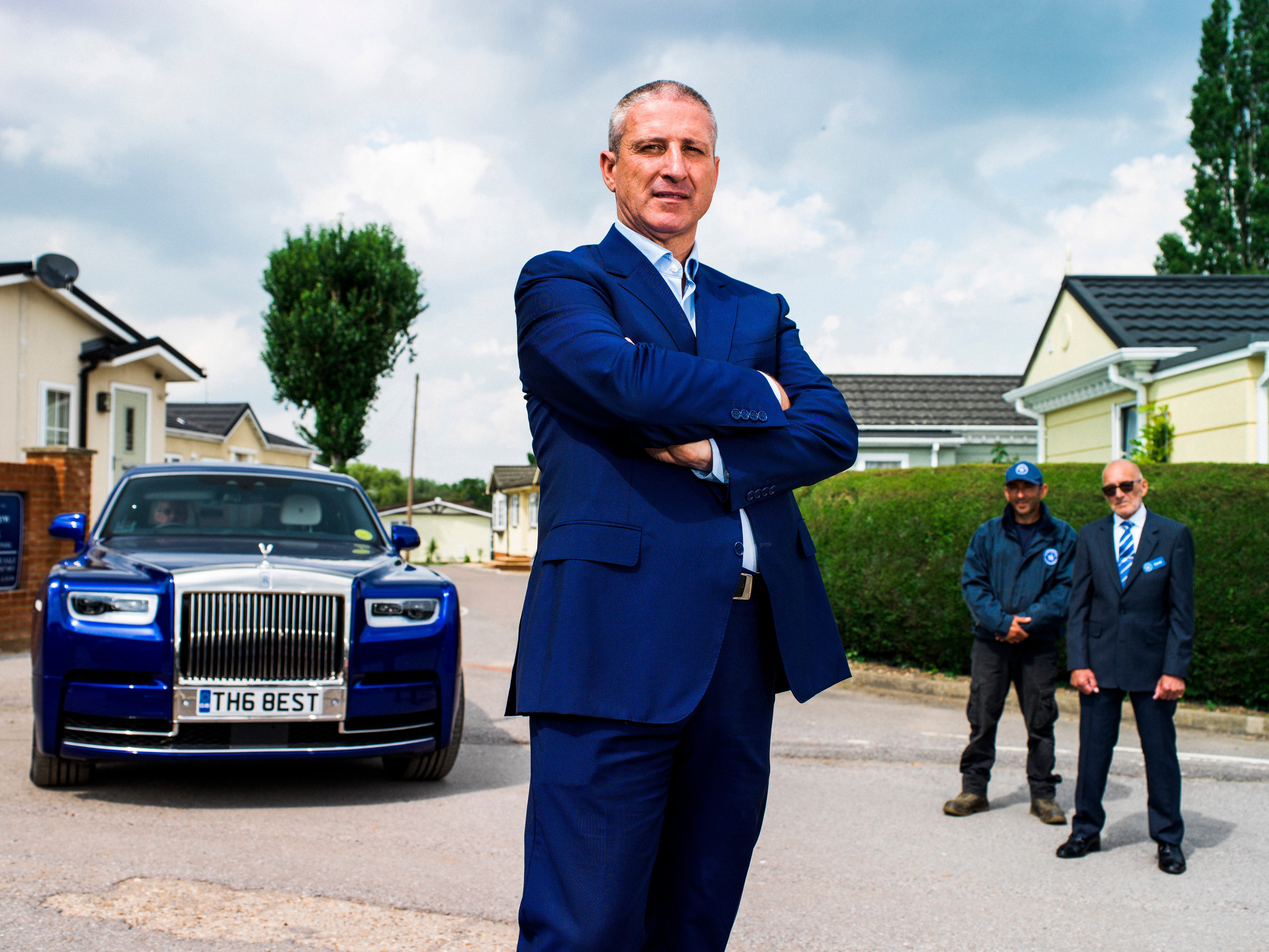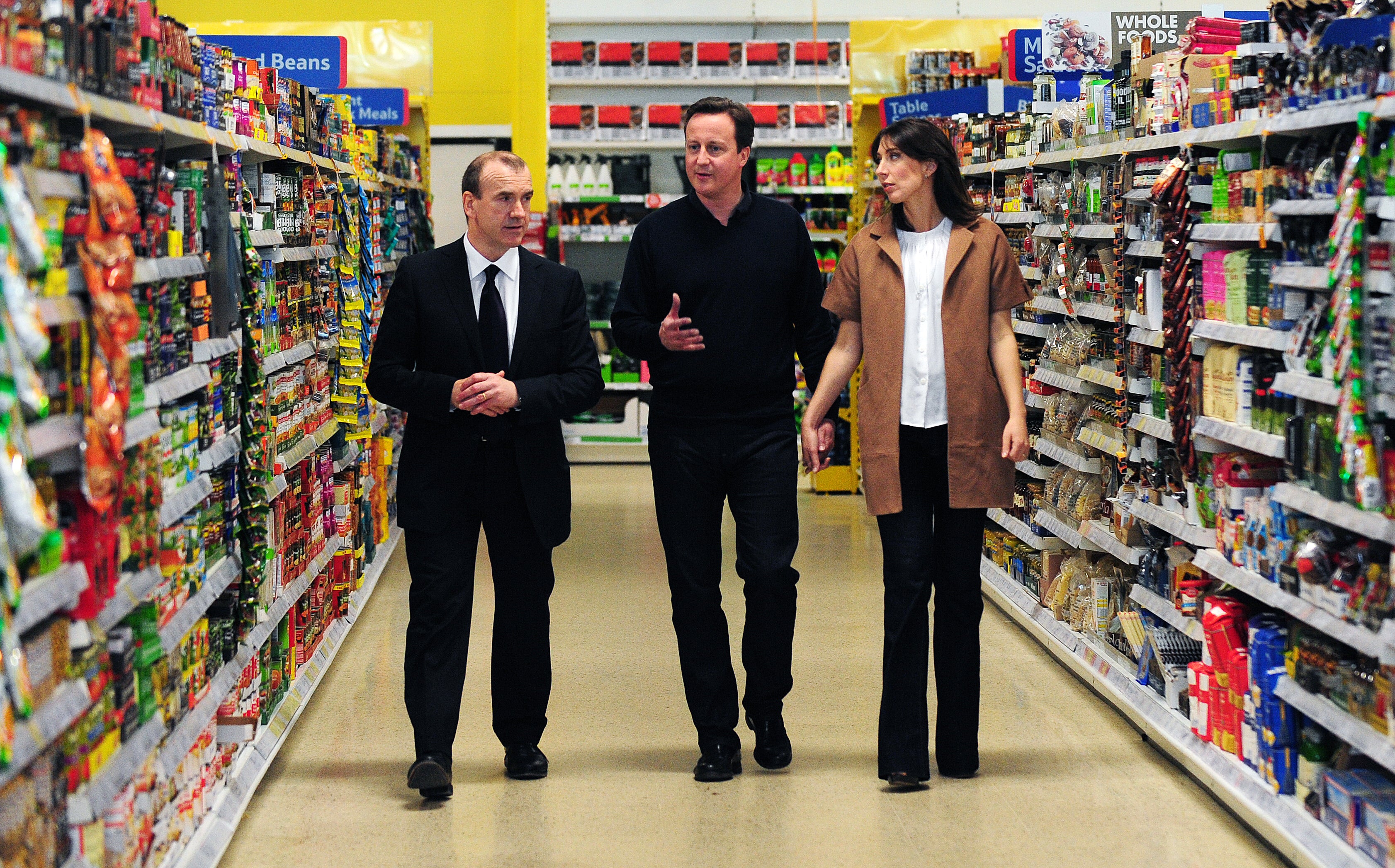Undercover Big Boss is shocking and shaming. Will our CEOs learn from it?
Many firms need the empathy that comes from understanding what frontline workers have to deal with – business owners would certainly benefit from watching the ITV show, writes Chris Blackhurst


Here is a proposal for the next CBI annual dinner. Run on a big screen at loud volume, to drown out the chatter, episodes from the current series of Undercover Big Boss.
Hopefully, the business chieftains will fall silent and take in the awfulness unfolding in front of them. Possibly, with any luck, they might be driven to thinking about their own organisations and whether they have any idea as to what they’re demanding of their workers.
To say that the ITV programme is an indictment of Britain’s boss class is an understatement. It’s shocking and shaming, and as well as at get-togethers for the employers’ body and similar associations, it ought to be required viewing on every MBA and executive advancement course. Better still, all directors should set aside time at their next meeting to watch. Private equity partners too, who think they know what makes a business tick and set ever bigger targets, but in reality, do not have a clue.
They won’t of course, because the show is easily dismissed as populist entertainment and therefore not worthy of serious consideration. But if the government wants to know why, exactly, there is such a gaping chasm between the boardroom and shop floor, why workers are so demotivated, why our national productivity is so low, they could also do worse than begin with Undercover Big Boss.
I’ve watched two of the four episodes and each one was horrific. Alfie Best, whose Wyldecrest caravan parks empire is worth £750m, is often described as the richest Romany gypsy in Britain. Best, 51, likes to call himself an “old-school, blood-and-blisters businessman”.
Yet, when he donned a disguise and went undercover, he appeared genuinely surprised that the maintenance person on one of his sites was forced to devote time to unblocking drains. It was filthy, horrible work, not made easier by the rudeness of Best’s paying customers.
It was depressing and embarrassing. But telling. Forrester is a number cruncher, an out-of-touch data junkie
Best, according to legend, was himself born in a caravan on the side of a road in Leicester to a poor Roma family, so you might suppose he would know a thing or two about drains and blockages and what causes them. Presumably that life was a long time ago and he’s now too busy adding to his vast portfolio to consider how his employees are faring – this in a pandemic, too, when pressure to “staycation” made his sites busier than ever.
What was also apparent was the lack of communication between middle layers of management and the hapless souls managing the holidaymakers. Part of the reason for the latter’s brusqueness regarding the drains was their frustration at not being listened to, at phoning a customer service line and someone saying they would check on the problem and never doing so.
When he was running Tesco and taking it to a point where £1 in every seven spent in British shops went through a Tesco till, Sir Terry Leahy required that every single one of the group’s senior executives had to spend two weeks each year working in the stores or depots. They had to man the checkouts, stack shelves and load lorries. There were no exceptions. Leahy would don overalls, same as the lowliest employee, and put in shifts.
The result was that Leahy and his management colleagues knew what their staff were experiencing, what they could reasonably expect of them and how best they could get them to go further. There was a direct line of appreciation and understanding from top to bottom. Even allowing for the trickery of TV, for slick editing, it’s clear that at many firms there is no such empathy.

At least Best exuded compassion, he came across as a “good people person”. Alas, the same cannot be said for Robert Forrester, 50, the CEO of Vertu Motors, which bought the 100-year-old Bristol Street Motors in 2007 for £40m when it had 33 dealerships, but now they have 149 all over the UK. He’s in charge of 6,000 employees in a £3bn business that sells one car every four minutes.
He’s an Oxford graduate, an accountant by training, who freely admits to never having sold a vehicle. He’s someone whose working life is dictated by data. His private life, too, judging by the remark of his wife, Helen, that he trusts numbers over his own feelings.
He was forever consulting a screen recording sales and comparing them versus last week, last year and so on, and against his other outlets and ranking his sales staff. He had no clue as to what it took to achieve a sale. But that did not stop him loading up ever-more onerous demands.
“My relationship style is harsh but fair,” said Robert, then when asked if he had high standards replied: “I think most people would say I'm completely unreasonable.”
First stop was a salesman who told his incognito CEO of the pressure he was under to achieve more sales. Managers would take it out on their staff if they failed. When he was dealing with a personal issue at home and didn’t sell a car for nine days he was verbally abused. “Instead of asking me if everything was alright it was, ‘What are you doing, you haven’t sold a car for nine days, you might as well go home. Shall I do your job for you?’”

Next up was a van salesman, a tour de force called Lee and known as “Lee the Van”. He was a master salesman but told the disguised chief how when the virus struck, they’d been ordered to sell online and make their own sales videos. As it happened, the laddish Lee was a brilliant performer but few would not be so adept, including as it turned out, Forrester, who had gaily issued the instruction.
Forrester’s final stop was with a car valet, who spruced up the cars before they went on display. Forrester was dumbfounded at his energy and commitment. Clearly, the boss had no notion that such people helped his group, assisted him in adding to his fortune.
It was depressing and embarrassing. But telling. Forrester is a number cruncher, an out-of-touch data junkie. Awkwardly, at the end, when he told Lee who he was, he laboured the point about Lee’s sexist humour before applauding his efforts. This was Forrester, the big I am, laying down the law. It was painful. All he needed to do was tick Lee off, Lee was not stupid, he would get it – but Forrester could not see that either. After that, his congratulating of Lee felt like an after-thought and demotivating and unappreciative.
Forrester is intelligent, doubtless he possesses a high IQ. But his EQ, his empathetic quotient, must be low. In that, he’s not alone, he’s the same as too many of our corporate titans. If you want to know what is wrong with UK Plc, Undercover Big Boss is the perfect illustration.






Join our commenting forum
Join thought-provoking conversations, follow other Independent readers and see their replies
Comments